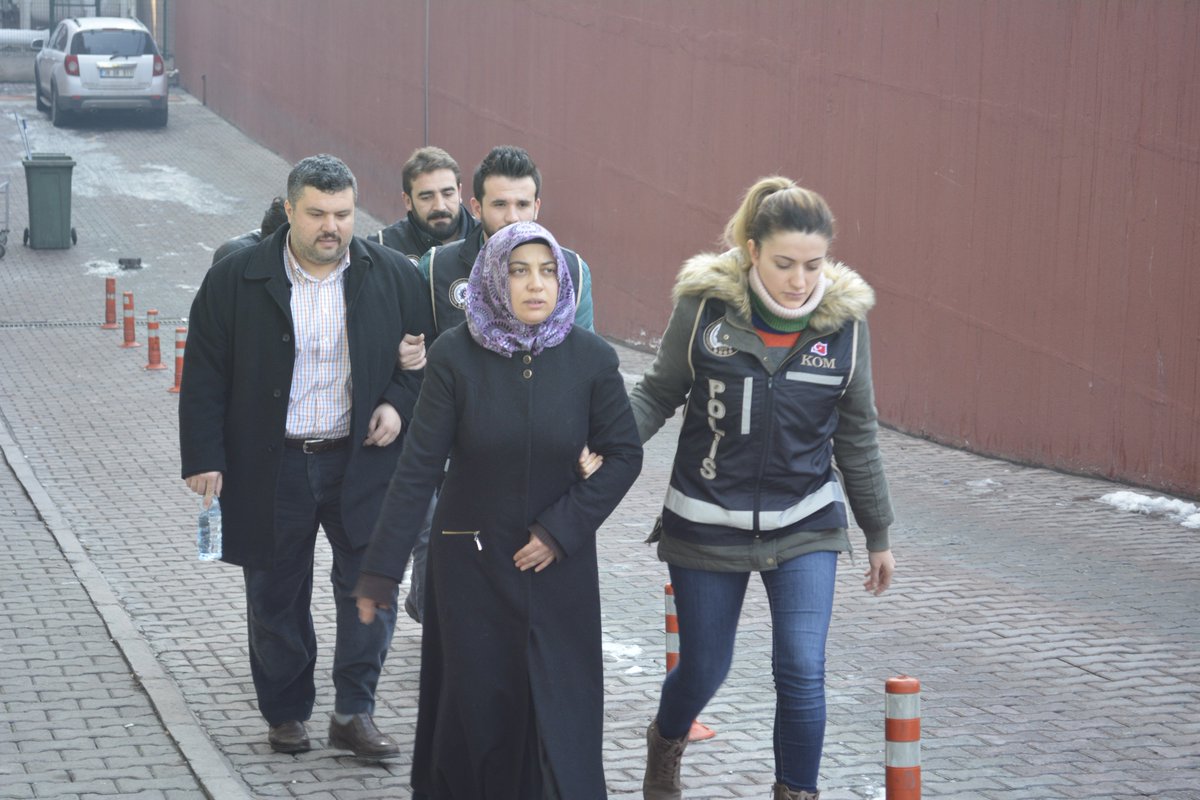The United Nations Working Group on Arbitrary Detention (WGAD) has concluded that the arrest and detention of an individual with alleged ties to the Gülen movement was arbitrary and said such cases may constitute crimes against humanity, the Stockholm Center for Freedom reported.
The case in question concerned Muhammet Şentürk, arrested and convicted of membership in a terrorist organization due to his alleged links to the Gülen movement, a faith-based group accused by the government of “terrorist” activities.
“It expresses grave concern about the pattern that all these cases follow and recalls that, under certain circumstances, widespread or systematic imprisonment or other severe deprivation of liberty in violation of fundamental rules of international law may constitute crimes against humanity,” the UN working group said.
WGAD urged the Turkish government to ensure a full and independent investigation of the circumstances surrounding the detention and to take appropriate measures against those responsible for the violation of their rights.
Professor Şentürk was arrested on November 11, 2016, by officers from the counterterrorism unit of the Istanbul Police Department, on the basis of a warrant issued by the Karaman Public Prosecutor’s Office. After spending two days in custody at Pendik district police headquarters, he was taken to Karaman province, 800 kilometers away, in a police car. He was sentenced to six years, eight months’ imprisonment in March, 2018. The charges against him were based on membership in the Karaman Academic Youth Association, his alleged use of the ByLock application, taking part in a Gülen movement student organization, meeting with military cadets and having a bank account at Bank Asya, a Gülen movement-affiliated financial institution that at one time was one of Turkey’s biggest commercial banks.
“The deprivation of liberty of Muhammet Şentürk, being in contravention of articles 2, 3, 7, 9, 10, 11 (1), 19 and 20 of the Universal Declaration of Human Rights and articles 2 (1), 9 (3), 14 (3) (e), 19, 21 and 26 of the International Covenant on Civil and Political Rights, is arbitrary and falls within categories I, II, III and V,” the working group said.
Turkish President Recep Tayyip Erdoğan has been targeting followers of the Gülen movement since the corruption investigations of December 17-25, 2013, which implicated then-Prime Minister Erdoğan, his family members and his inner circle.
Dismissing the investigations as a Gülenist coup and conspiracy against his government, Erdoğan designated the movement as a terrorist organization and began to target its members. He intensified the crackdown on the movement following a coup attempt on July 15, 2016 that he accused Gülen of masterminding. Gülen and the movement strongly deny involvement in the abortive putsch or any terrorist activity.
In response to the allegations about the victim, the Turkish government gave no details concerning the specific situation of the individuals in question but provided its views on the Gülen movement. According to WGAD’s opinions, in both cases the Turkish government claimed that the movement “is now employing the strategy of presenting itself as the victim of human rights violations to hide its crimes.”
Instead of responding to allegations the Turkish government requested “the special procedures of the Human Rights Council, including the Working Group on Arbitrary Detention, not to allow the Fethullahist terrorist organization and its members to abuse those mechanisms, and to dismiss their allegations.”
The working group said it treats all submissions made to it equally and accepts them as allegations, inviting the government concerned to respond. “The onus is therefore on the Government to engage with the Working Group constructively by addressing the specific allegations made to assist the Working Group in reaching a conclusion in each communication brought to its attention,” WGAD said.
The working group observed that in the present case, as in many others, the essence of the allegations of alliance with the Gülen movement was based on such regular daily activities. “Nothing in the materials before it allows the Working Group to conclude that these activities can be regarded as capable of generating a reasonable suspicion that he had committed the alleged criminal offences,” the working group said.
Similarly, the working group said no evidence has been presented that “the activities of the petitioner, described above, could have been equated with being engaged in any terrorism-related activity.”


